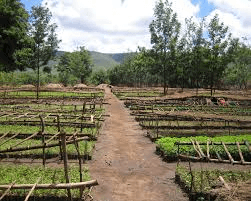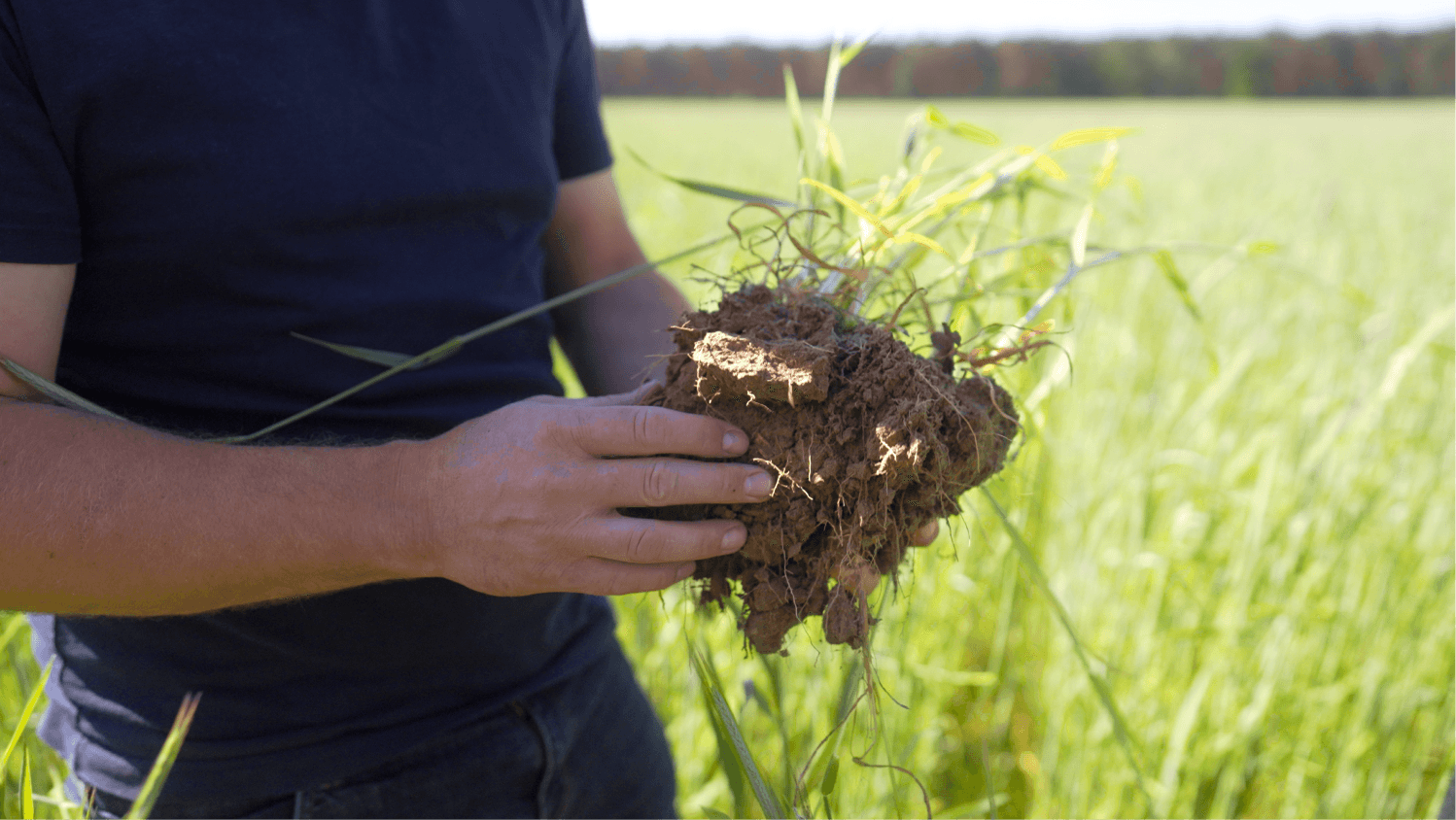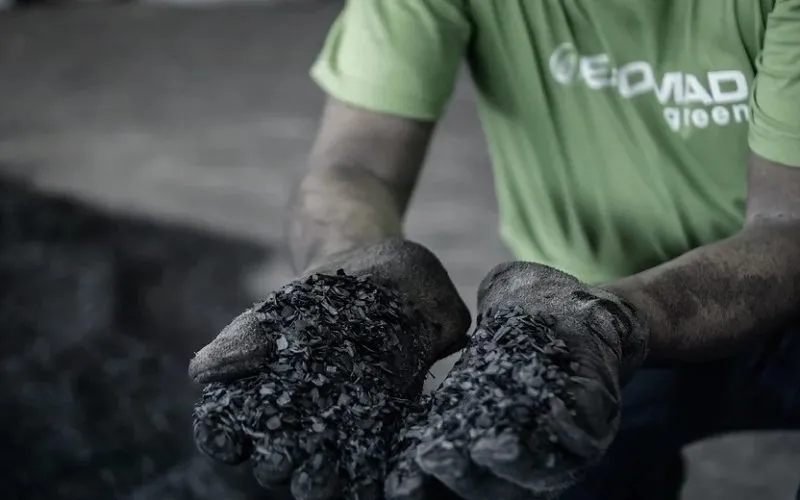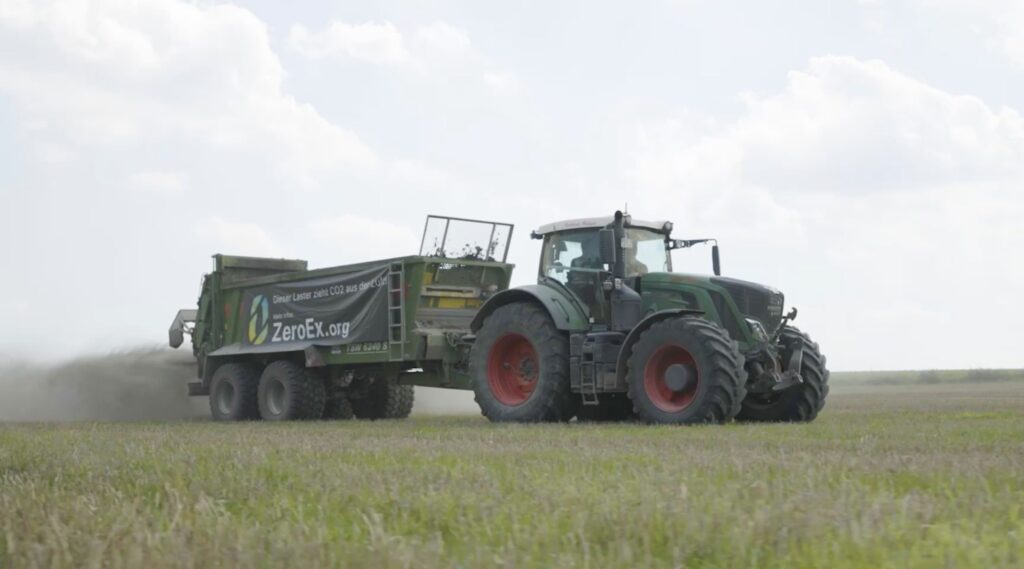laat ons je terugbellen.
Een overzicht van de projecten die we ondersteunen
Wij selecteren de beste lokale en internationale klimaat- en boomplantprojecten
Wij selecteren de beste lokale en internationale klimaat- en boomplantprojecten


Zijn jullie klaar om Klimaatprojecten te ondersteunen?
Sluit je aan bij 200+ bedrijven die impact maken met Regreener
Zijn jullie klaar om Klimaatprojecten te ondersteunen?
Sluit je aan bij 200+ bedrijven die impact maken met Regreener
Zijn jullie klaar om Klimaatprojecten te ondersteunen?
Sluit je aan bij 200+ bedrijven die impact maken met Regreener
Veelgestelde vragen over onze projecten
Alles wat je moet weten
Wat is een Carbon Credit (CO2-certificaat)?
Een Carbon Credit is een verhandelbaar certificaat dat de verwijdering of vermindering van één ton koolstofdioxide (CO₂) of het equivalent daarvan in andere broeikasgassen uit de atmosfeer vertegenwoordigt. Bedrijven, overheden en individuen kunnen CO₂-kredieten kopen om hun eigen uitstoot te compenseren, waarbij ze projecten zoals herbebossing, hernieuwbare energie of methaanopvang steunen.
Werken carbon credits echt?
Dat kan zeker, maar alleen als het verantwoordelijk wordt gedaan. Hoogwaardige, geverifieerde carbon credits ondersteunen echte, meetbare klimaatprojecten. Maar ze zijn het meest effectief als ze worden gecombineerd met serieuze interne reductie-inspanningen en niet als vervanging daarvoor worden gebruikt.
Hoe weet ik of een carbon credit van hoge kwaliteit is?
Kijk of het project gecertificeerd is door erkende standaarden zoals Verra, Gold Standard of de American Carbon Registry.
Hoogwaardige credits zijn meetbaar, permanent, aanvullend (zouden niet zonder financiering plaatsvinden) en onafhankelijk geverifieerd.
Zijn carbon credits hetzelfde als co2 compensatie?
Bijna. De termen worden vaak door elkaar gebruikt. Carbon credits verwijzen naar de verhandelbare eenheden, terwijl compensaties de actie beschrijven van het compenseren van emissies met behulp van die credits.
Hoe kan ik er zeker van zijn dat de carbon credits niet bijdragen aan greenwashing?
Al onze projecten worden zorgvuldig geselecteerd op basis van een vierdelig kwaliteitskader:
Een bewezen staat van dienst in het verwijderen of verminderen van CO₂-uitstoot;
Een positieve impact op biodiversiteit;
Sociale impact: het creëren van werkgelegenheid voor lokale gemeenschappen;
Datatransparantie: onze projecten hebben een échte, meetbare en verifieerbare impact.
Elk project wordt beoordeeld op meer dan 100 datapunten, inclusief analyses van onafhankelijke beoordelaars zoals BeZero en Renoster.
Zo garanderen we dat we alleen de beste 5% klimaatprojecten wereldwijd aanbieden — met aantoonbare klimaatimpact én tastbare sociale voordelen.
Waarom variëren de prijzen van CO2-kredieten zo sterk?
Prijzen hangen af van het projecttype, de locatie, de verificatiestandaard en de vraag in de markt.
Biedt Regreener alleen dure projecten aan?
Hoewel we ons richten op hoogwaardige, grondig beoordeelde projecten, bieden we ook opties die vriendelijker zijn voor het budget. Prijs is een belangrijke factor - maar het is niet de enige. We geloven in het vinden van een balans tussen impact, kwaliteit en betaalbaarheid, zodat u projecten kunt ondersteunen die zowel met uw waarden als uw budget in lijn zijn.
Waarom zijn natuurprojecten duurder dan andere projecten?
Nature-based projecten—zoals herbebossing, bosbescherming, of mangroveherstel—zijn vaak duurder dan technologiegebaseerde CO2-compensatieprojecten omdat ze complexe, langdurige ecologische en sociale processen met zich meebrengen. Deze projecten vereisen grote stukken land, doorlopende monitoring en samenwerking met lokale gemeenschappen om ervoor te zorgen dat ecosystemen beschermd en hersteld worden.
Bovendien leveren natuurprojecten vaak extra voordelen naast CO2-verwijdering, zoals bescherming van biodiversiteit, waterbehoud en verbeterde levensomstandigheden voor lokale gemeenschappen. Deze extra voordelen verhogen de waarde, maar ook de kosten van projectontwikkeling, certificering en voortdurend onderhoud.
Wat maakt Regreener anders dan andere leveranciers van CO2-credits?
In tegenstelling tot traditionele aanbieders beoordeelt Regreener meer dan 100 datapunten voor elk afzonderlijk project. Deze grondige analyse stelt ons in staat om slechts de top 10% van impactprojecten wereldwijd te selecteren.
Of je focus nu ligt op regionale impact, sociale voordelen of prijs, wij stellen een op maat gemaakt portfolio samen van 3-5 projecten van de hoogste kwaliteit — afgestemd op jullie prioriteiten.
Wat zijn de beste aanbieders van carbon credits in 2025?
In 2025 behoren Regreener, South Pole, ClimatePartner, Anthesis en Rabo Carbon Bank tot de beste aanbieders van carbon credits. Ze onderscheiden zich door hun meetbare impact, transparantie en kwaliteit van projecten op het gebied van zowel CO2-reductie als CO2-verwijdering.
Wat is het verschil tussen de vrijwillige en verplichte carbonmarkt?
Verplichte markten worden gereguleerd door overheden (zoals het EU ETS) en gelden voor sectoren met wettelijke uitstootlimieten.
Vrijwillige markten zijn bedoeld voor bedrijven of individuen die op eigen initiatief hun uitstoot willen compenseren.
Beide systemen spelen een belangrijke rol in wereldwijde klimaatmaatregelen.
Wat is een Carbon Credit (CO2-certificaat)?
Een Carbon Credit is een verhandelbaar certificaat dat de verwijdering of vermindering van één ton koolstofdioxide (CO₂) of het equivalent daarvan in andere broeikasgassen uit de atmosfeer vertegenwoordigt. Bedrijven, overheden en individuen kunnen CO₂-kredieten kopen om hun eigen uitstoot te compenseren, waarbij ze projecten zoals herbebossing, hernieuwbare energie of methaanopvang steunen.
Werken carbon credits echt?
Dat kan zeker, maar alleen als het verantwoordelijk wordt gedaan. Hoogwaardige, geverifieerde carbon credits ondersteunen echte, meetbare klimaatprojecten. Maar ze zijn het meest effectief als ze worden gecombineerd met serieuze interne reductie-inspanningen en niet als vervanging daarvoor worden gebruikt.
Hoe weet ik of een carbon credit van hoge kwaliteit is?
Kijk of het project gecertificeerd is door erkende standaarden zoals Verra, Gold Standard of de American Carbon Registry.
Hoogwaardige credits zijn meetbaar, permanent, aanvullend (zouden niet zonder financiering plaatsvinden) en onafhankelijk geverifieerd.
Zijn carbon credits hetzelfde als co2 compensatie?
Bijna. De termen worden vaak door elkaar gebruikt. Carbon credits verwijzen naar de verhandelbare eenheden, terwijl compensaties de actie beschrijven van het compenseren van emissies met behulp van die credits.
Hoe kan ik er zeker van zijn dat de carbon credits niet bijdragen aan greenwashing?
Al onze projecten worden zorgvuldig geselecteerd op basis van een vierdelig kwaliteitskader:
Een bewezen staat van dienst in het verwijderen of verminderen van CO₂-uitstoot;
Een positieve impact op biodiversiteit;
Sociale impact: het creëren van werkgelegenheid voor lokale gemeenschappen;
Datatransparantie: onze projecten hebben een échte, meetbare en verifieerbare impact.
Elk project wordt beoordeeld op meer dan 100 datapunten, inclusief analyses van onafhankelijke beoordelaars zoals BeZero en Renoster.
Zo garanderen we dat we alleen de beste 5% klimaatprojecten wereldwijd aanbieden — met aantoonbare klimaatimpact én tastbare sociale voordelen.
Waarom variëren de prijzen van CO2-kredieten zo sterk?
Prijzen hangen af van het projecttype, de locatie, de verificatiestandaard en de vraag in de markt.
Biedt Regreener alleen dure projecten aan?
Hoewel we ons richten op hoogwaardige, grondig beoordeelde projecten, bieden we ook opties die vriendelijker zijn voor het budget. Prijs is een belangrijke factor - maar het is niet de enige. We geloven in het vinden van een balans tussen impact, kwaliteit en betaalbaarheid, zodat u projecten kunt ondersteunen die zowel met uw waarden als uw budget in lijn zijn.
Waarom zijn natuurprojecten duurder dan andere projecten?
Nature-based projecten—zoals herbebossing, bosbescherming, of mangroveherstel—zijn vaak duurder dan technologiegebaseerde CO2-compensatieprojecten omdat ze complexe, langdurige ecologische en sociale processen met zich meebrengen. Deze projecten vereisen grote stukken land, doorlopende monitoring en samenwerking met lokale gemeenschappen om ervoor te zorgen dat ecosystemen beschermd en hersteld worden.
Bovendien leveren natuurprojecten vaak extra voordelen naast CO2-verwijdering, zoals bescherming van biodiversiteit, waterbehoud en verbeterde levensomstandigheden voor lokale gemeenschappen. Deze extra voordelen verhogen de waarde, maar ook de kosten van projectontwikkeling, certificering en voortdurend onderhoud.
Wat maakt Regreener anders dan andere leveranciers van CO2-credits?
In tegenstelling tot traditionele aanbieders beoordeelt Regreener meer dan 100 datapunten voor elk afzonderlijk project. Deze grondige analyse stelt ons in staat om slechts de top 10% van impactprojecten wereldwijd te selecteren.
Of je focus nu ligt op regionale impact, sociale voordelen of prijs, wij stellen een op maat gemaakt portfolio samen van 3-5 projecten van de hoogste kwaliteit — afgestemd op jullie prioriteiten.
Wat zijn de beste aanbieders van carbon credits in 2025?
In 2025 behoren Regreener, South Pole, ClimatePartner, Anthesis en Rabo Carbon Bank tot de beste aanbieders van carbon credits. Ze onderscheiden zich door hun meetbare impact, transparantie en kwaliteit van projecten op het gebied van zowel CO2-reductie als CO2-verwijdering.
Wat is het verschil tussen de vrijwillige en verplichte carbonmarkt?
Verplichte markten worden gereguleerd door overheden (zoals het EU ETS) en gelden voor sectoren met wettelijke uitstootlimieten.
Vrijwillige markten zijn bedoeld voor bedrijven of individuen die op eigen initiatief hun uitstoot willen compenseren.
Beide systemen spelen een belangrijke rol in wereldwijde klimaatmaatregelen.
Wat is een Carbon Credit (CO2-certificaat)?
Een Carbon Credit is een verhandelbaar certificaat dat de verwijdering of vermindering van één ton koolstofdioxide (CO₂) of het equivalent daarvan in andere broeikasgassen uit de atmosfeer vertegenwoordigt. Bedrijven, overheden en individuen kunnen CO₂-kredieten kopen om hun eigen uitstoot te compenseren, waarbij ze projecten zoals herbebossing, hernieuwbare energie of methaanopvang steunen.
Werken carbon credits echt?
Dat kan zeker, maar alleen als het verantwoordelijk wordt gedaan. Hoogwaardige, geverifieerde carbon credits ondersteunen echte, meetbare klimaatprojecten. Maar ze zijn het meest effectief als ze worden gecombineerd met serieuze interne reductie-inspanningen en niet als vervanging daarvoor worden gebruikt.
Hoe weet ik of een carbon credit van hoge kwaliteit is?
Kijk of het project gecertificeerd is door erkende standaarden zoals Verra, Gold Standard of de American Carbon Registry.
Hoogwaardige credits zijn meetbaar, permanent, aanvullend (zouden niet zonder financiering plaatsvinden) en onafhankelijk geverifieerd.
Zijn carbon credits hetzelfde als co2 compensatie?
Bijna. De termen worden vaak door elkaar gebruikt. Carbon credits verwijzen naar de verhandelbare eenheden, terwijl compensaties de actie beschrijven van het compenseren van emissies met behulp van die credits.
Hoe kan ik er zeker van zijn dat de carbon credits niet bijdragen aan greenwashing?
Al onze projecten worden zorgvuldig geselecteerd op basis van een vierdelig kwaliteitskader:
Een bewezen staat van dienst in het verwijderen of verminderen van CO₂-uitstoot;
Een positieve impact op biodiversiteit;
Sociale impact: het creëren van werkgelegenheid voor lokale gemeenschappen;
Datatransparantie: onze projecten hebben een échte, meetbare en verifieerbare impact.
Elk project wordt beoordeeld op meer dan 100 datapunten, inclusief analyses van onafhankelijke beoordelaars zoals BeZero en Renoster.
Zo garanderen we dat we alleen de beste 5% klimaatprojecten wereldwijd aanbieden — met aantoonbare klimaatimpact én tastbare sociale voordelen.
Waarom variëren de prijzen van CO2-kredieten zo sterk?
Prijzen hangen af van het projecttype, de locatie, de verificatiestandaard en de vraag in de markt.
Biedt Regreener alleen dure projecten aan?
Hoewel we ons richten op hoogwaardige, grondig beoordeelde projecten, bieden we ook opties die vriendelijker zijn voor het budget. Prijs is een belangrijke factor - maar het is niet de enige. We geloven in het vinden van een balans tussen impact, kwaliteit en betaalbaarheid, zodat u projecten kunt ondersteunen die zowel met uw waarden als uw budget in lijn zijn.
Waarom zijn natuurprojecten duurder dan andere projecten?
Nature-based projecten—zoals herbebossing, bosbescherming, of mangroveherstel—zijn vaak duurder dan technologiegebaseerde CO2-compensatieprojecten omdat ze complexe, langdurige ecologische en sociale processen met zich meebrengen. Deze projecten vereisen grote stukken land, doorlopende monitoring en samenwerking met lokale gemeenschappen om ervoor te zorgen dat ecosystemen beschermd en hersteld worden.
Bovendien leveren natuurprojecten vaak extra voordelen naast CO2-verwijdering, zoals bescherming van biodiversiteit, waterbehoud en verbeterde levensomstandigheden voor lokale gemeenschappen. Deze extra voordelen verhogen de waarde, maar ook de kosten van projectontwikkeling, certificering en voortdurend onderhoud.
Wat maakt Regreener anders dan andere leveranciers van CO2-credits?
In tegenstelling tot traditionele aanbieders beoordeelt Regreener meer dan 100 datapunten voor elk afzonderlijk project. Deze grondige analyse stelt ons in staat om slechts de top 10% van impactprojecten wereldwijd te selecteren.
Of je focus nu ligt op regionale impact, sociale voordelen of prijs, wij stellen een op maat gemaakt portfolio samen van 3-5 projecten van de hoogste kwaliteit — afgestemd op jullie prioriteiten.
Wat zijn de beste aanbieders van carbon credits in 2025?
In 2025 behoren Regreener, South Pole, ClimatePartner, Anthesis en Rabo Carbon Bank tot de beste aanbieders van carbon credits. Ze onderscheiden zich door hun meetbare impact, transparantie en kwaliteit van projecten op het gebied van zowel CO2-reductie als CO2-verwijdering.
Wat is het verschil tussen de vrijwillige en verplichte carbonmarkt?
Verplichte markten worden gereguleerd door overheden (zoals het EU ETS) en gelden voor sectoren met wettelijke uitstootlimieten.
Vrijwillige markten zijn bedoeld voor bedrijven of individuen die op eigen initiatief hun uitstoot willen compenseren.
Beide systemen spelen een belangrijke rol in wereldwijde klimaatmaatregelen.












